Prof. Mark O'Neill, Consultant Cardiologist and Professor of Electrophysiology
Prof. Mark O'Neill
Consultant Cardiologist and Professor of Electrophysiology
Prof. Mark O'Neill DPhil FRCP FHRS MRCP MB BCh BAO
Consultant Cardiologist and Professor of Electrophysiology
Prof. Mark O'Neill
Consultant Cardiologist and Professor of Electrophysiology DPhil FRCP FHRS MRCP MB BCh BAO

Areas of expertise
- Atrial fibrillation
- Arrhythmia (irregular heartbeat)
- Palpitations
- Breathlessness
- Atrial flutter


Recommendations for Prof. O'Neill
These recommendations are for information purposes only. Doctors providing recommendations do so in good faith and are not responsible for clinical outcomes.












Recommended by:
Make an appointment
Address
-
The Cardiac Clinic
St Olaf House, 27 Tooley Street, London, SE1 2PR
-
London Bridge Hospital
27 Tooley Street, London, SE1 2PR
About Prof. Mark O'Neill
Professor Mark O'Neill is a distinguished Consultant Cardiologist and Professor of Cardiac Electrophysiology at The Cardiac Clinic, London Bridge Hospital. He earned his DPhil in Cardiac Physiology from the University of Oxford as a Rhodes Scholar in 1995 and graduated with first-class honours from University College Dublin in 1998. He completed his subspecialty training in interventional cardiac electrophysiology at St Mary’s Hospital and the renowned arrhythmia centre in Bordeaux.
Appointed as a Professor in 2013, Professor O'Neill has since led the arrhythmia service, regional training programme, and cardiac electrophysiology research division. He was honoured with the National Bronze Clinical Excellence award in 2016 and 2021 for his exceptional clinical and academic contributions.
Professor O'Neill specialises in treating various heart rhythm conditions, including supraventricular tachycardia, atrial fibrillation, atrial flutter/tachycardia, arrhythmias in adult congenital heart disease, and ventricular tachycardia. He performs interventional electrophysiology procedures such as catheter ablation, AF ablation, and pulmonary vein isolation to manage these conditions. He is dedicated to helping patients understand their symptoms and developing personalised treatment plans.
An international opinion leader in cardiac electrophysiology, Professor O'Neill is actively involved in research, focusing on the mechanisms of atrial fibrillation and improving clinical outcomes of AF ablation through imaging and computational modelling. He regularly lectures in the UK and abroad on managing atrial arrhythmias.
Areas of expertise
- 24 hour blood pressure monitor
- Adult congenital heart disease
- AF ablation
- Ambulatory heart rhythm monitoring (1-14 days)
- Arrhythmia (irregular heartbeat)
- Arrhythmia in adult congenital heart disease
- Atrial fibrillation
- Atrial flutter
- Atrial tachycardia
- Bradycardia
- Breathlessness
- Calcium coronary score
- Cardiac MRI
- Cardioversion
- Catheter ablation
- Chest pain
- CT coronary angiogram
- DC cardioversion
- Dizziness
- ECG monitor
- Echocardiogram
- Electrophysiology study
- Fainting
- Health assessments
- Heart & lung health assessments
- Heart attack
- Heart scan
- Implantable loop recorder
- Loss of consciousness (syncope)
- Palpitations
- Pulmonary vein isolation
- Stress echocardiogram
- Supraventricular tachycardia (SVT)
- Tachycardia
- Transoesophageal echocardiogram
- Ventricular fibrillation
Frequently asked questions
What are the common symptoms that your patients tend to present with?
It's quite varied. If the patient has been appropriately referred, it is usually because of palpitations. That's the most common symptom among the patients that I would see.
Patients may also be referred with dizzy spells, breathlessness, lightheadedness, or even loss of consciousness. Oftentimes, patients will have researched their symptoms online in advance and will have decided that they should visit a doctor. Ectopic beats are a common symptom for which patients self-refer.
Sometimes a specific arrhythmia diagnosis has been made or suspected elsewhere and the patient has been referred for specialist arrhythmia-focused investigation and management. The most common confirmed diagnosis made elsewhere and for which I am referred patients is atrial fibrillation. Less common but very amenable to curative treatment is an ECG-confirmed diagnosis of either atrial flutter or supraventricular tachycardia.
Some patients may have a family history of heart troubles and they just want to be checked out to make sure they don’t have the same problem.
What are the treatments that you're able to offer your patients?
We can investigate and treat every form of heart rhythm disorder. The treatments break down into two broad categories – those for bradycardia (excessively low heart rates) and tachycardia (excessively high heart rates). For bradycardia, the treatment may be implantation of a pacemaker; for tachycardia, the treatments options are broader and depend really very much on the diagnosis. This could vary from medication to catheter ablation to implantation of a defibrillator.
The majority of our work is seeing patients who have symptoms, but who don’t necessarily need an intervention and distinguishing those from the patients who do need an intervention, or whose quality of life could be improved by considering one.
The most common intervention by far that we perform is catheter ablation for atrial fibrillation which is not surprising as this is the most common heart rhythm disturbance!
What are your areas of sub-specialist interest?
My practice is built on a strong academic base. I'm engaged in ongoing research into the conditions that I ultimately treat in patients, particularly atrial fibrillation. My team has a very broad-reaching research portfolio to investigate mechanisms of atrial fibrillation, but also to identify the patients who would benefit most from intervention and hopefully to avoid invasive treatments in patients where the likelihood of arrhythmia cure is low.
Atrial fibrillation is a blunt diagnosis, made on the basis of a single heart rhythm ECG recording but actually it represents a spectrum of electrical disorder of the heart. So, being able to tailor appropriately the investigation and management to the patient in front of us is very important. I would argue that this is something we do very well, helped in part by our extensive research work (over 250 peer-reviewed journal papers) specifically in the investigation and management of atrial fibrillation.
We also have strong links with cardiac imaging, bioengineering, and computational modelling to support our research in atrial fibrillation. Although we are electrophysiologists, we have access to expertise in these complementary fields that permits us to offer something beyond standard electrophysiological practice. Whether that makes us better or not, I don’t know, but it certainly makes us evidence-based and unlikely to offer treatment on the basis of gut feeling or tradition!
The investigation and treatment our patients receive are based on the most contemporary data in the field of arrhythmia medicine and where appropriate, our own published work.
Professional memberships
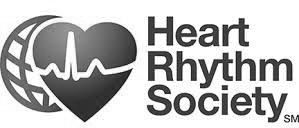

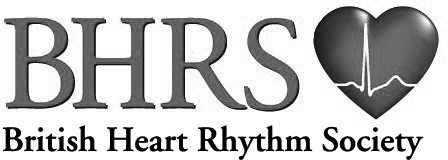
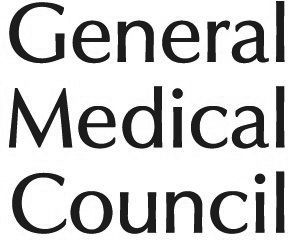
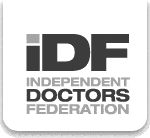
Articles by Prof. Mark O'Neill
Openep: A cross-platform electroanatomic mapping data format and analysis platform for electrophysiology research
Standardised computed tomographic assessment of left atrial morphology and tissue thickness in humans
Assessing the ability of substrate mapping techniques to guide ventricular tachycardia ablation using computational modelling
Evaluation of accelerated motion-compensated 3D water/fat late gadolinium enhanced MR for atrial wall imaging
Secondary stroke prevention following embolic stroke of unknown source in the absence of documented atrial fibrillation
Optimization of late gadolinium enhancement cardiovascular magnetic resonance imaging of post-ablation atrial scar






















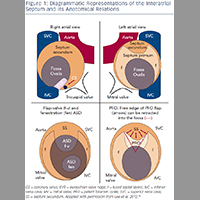
_1673267593127.png)
_1673268605090.png)
_1673268669088.png)
_1673268734177.png)
_1673269002749.png)
_1673269241693.png)
_1673269363750.png)




